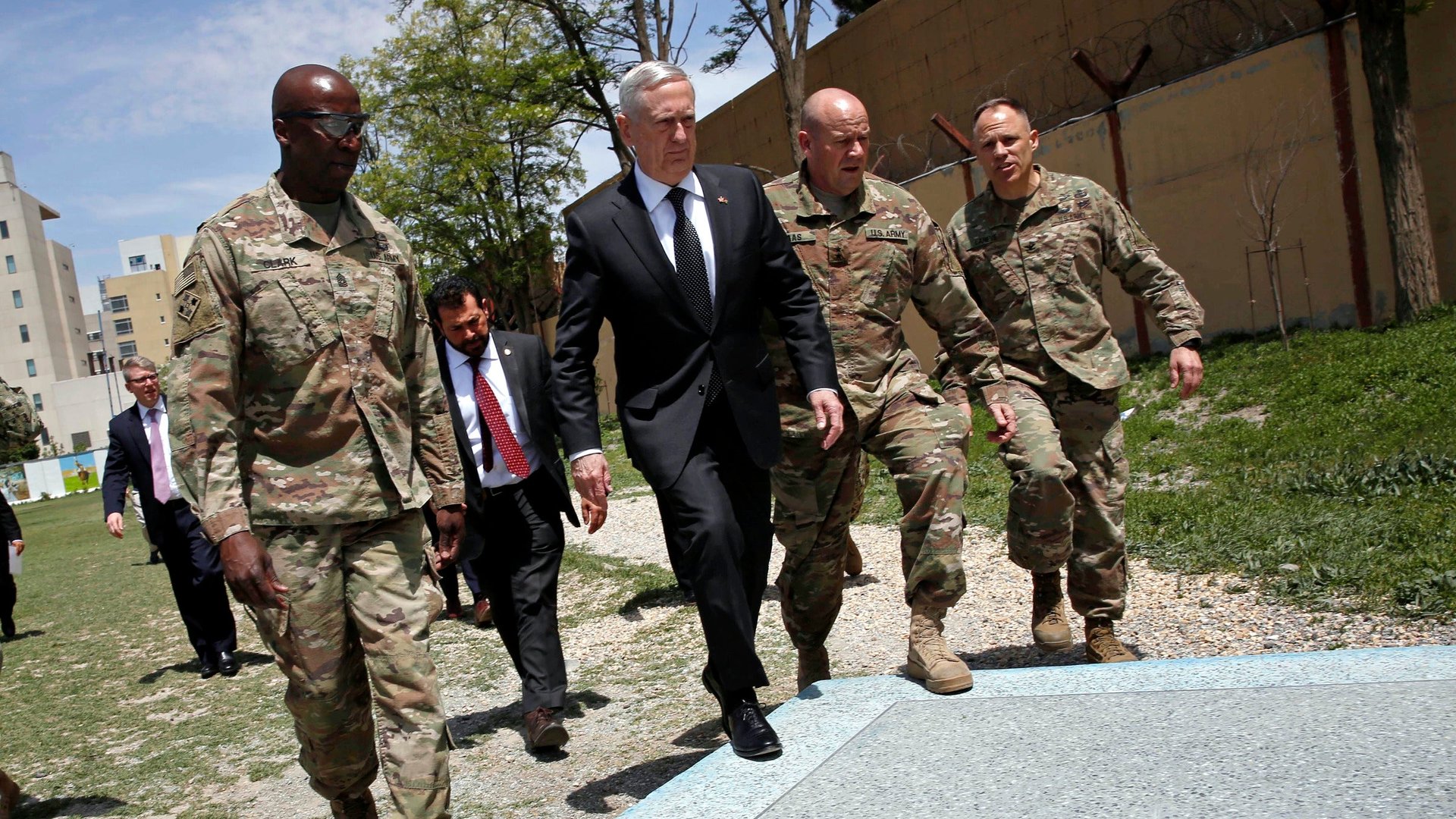Mattis warns that Trump endangers national security. Here’s what he’s talking about
Secretary of Defense James Mattis was unstinting in his criticism of Donald Trump in the damning, carefully written resignation letter delivered to the White House yesterday (Dec. 20). His main takeaway? Trump’s worldview threatens the global order that supports the US’s “security, prosperity and values,” and the president’s stance is incompatible with his own.


Secretary of Defense James Mattis was unstinting in his criticism of Donald Trump in the damning, carefully written resignation letter delivered to the White House yesterday (Dec. 20). His main takeaway? Trump’s worldview threatens the global order that supports the US’s “security, prosperity and values,” and the president’s stance is incompatible with his own.
The retired general is saying Trump endangers America, physically, economically, and morally. He even repeats the phrase “common defense” twice in his letter, a quote from the preamble of the US Constitution, which Trump pledged as president to “preserve, protect, and defend.” Mattis writes:
…we must use all tools of American power to provide for the common defense, including providing effective leadership to our alliances. NATO’s 29 democracies demonstrated that strength in their commitment to fighting alongside us following the 9-11 attack on America. The Defeat-ISIS coalition of 74 nations is further proof.
Similarly, I believe we must be resolute and unambiguous in our approach to those countries whose strategic interests are increasingly in tension with ours. It is clear that China and Russia, for example, want to shape a world consistent with their authoritarian model — gaining veto authority over other nations’ economic, diplomatic, and security decisions — to promote their own interests at the expense of their neighbors, America and our allies. That is why we must use all the tools of American power to provide for the common defense.
Trump’s non-political background, as heir to a tax-evading real-estate business, means he has little experience with and seemingly little respect for mutually beneficial compromise. Mattis, specific about some of the defense alliances Trump endangers, only alludes to others in his letter.
Here’s a rundown of the threatened defense partnerships he is thought to be referring to:
NATO
Trump has repeatedly attacked the post-World War II alliance between the US and Europe, refusing at first to affirm its key mutual-protection clause, calling it “obsolete” and haranguing member states for not paying what he thinks they should for their collective defense, mistakenly saying that means they owe the US money.
It’s a fundamental misunderstanding of how NATO works and the role it plays in global peace and prosperity, foreign-policy experts say. The mutual security pact designed to counter the Soviet Union has helped member nations create a stable trading system and democracy thrive in former Soviet states.
The US is the bedrock of this alliance, and Trump’s disturbance of it specifically aids Russia. “The weakening of NATO’s ability to make any sort of unified statement about anything creates opportunities for Putin,” said Stephen Biddle, a senior defense fellow at the Council on Foreign Relations and former advisor to the US military in Iraq and Afghanistan. “If I were living in the Baltics right now I would be selling real estate,” he said.
In another blow to the alliance, Trump is also planning on pulling thousands of troops out of Afghanistan, where they have been fighting alongside NATO allies.
The coalition to defeat ISIS
The group of 79 partners including the US was formed in September 2014, “committed to tackling Daesh on all fronts, to dismantling its networks and countering its global ambitions,” including the flow of its money and its presence on social media. Pulling US troops out of Syria, as Trump announced he would do ahead of Mattis’s resignation, shocked coalition members. Even Trump’s stalwart supporters on Fox & Friends say he is giving ISIS room to grow again.
The key partnership with Canada
The US’s most consistent, closest, and most important defense partner is Canada. The US’s northern neighbor is America’s first line of defense from any missiles sent from Russia or North Korea, through the long-standing NORAD agreement, which includes Artic radar to identify any potential attacks. This partnership was created to counter the Cold War threat of Communist Russia, as Quartz noted earlier:
Since WWII ended, the US and Canada have melded troops, equipment, and military strategies, creating a mammoth invisible shield to protect both countries against the threat of nuclear destruction. During the Cold War, the two countries created a string of radar outposts along Canada’s frozen northern border. They also built the unprecedented North American Aerospace Defense Command, or NORAD, which celebrated its 60th anniversary weeks before Trump’s tariffs.
Trump’s renegotiation of NAFTA included dubbing Canada a “security threat,” insulting the Canadian government, and particularly prime minister Justin Trudeau. While US security officials say there’s no long term damage, Canadian security experts have called the president’s actions unfathomable and “hard to rectify.”
The Pacific alliance
There is no comparable treaty to NATO in the Pacific. Instead the US has what academics call a “hub and spoke” system of bilateral agreements there. These are sometimes informal agreements that rely on decades of shared history after the Allied victory in WWII, relationships cemented by decades of trade.
Trump put one of those friendships in jeopardy when he signaled his willingness to pull the US military out of South Korea, while also slapping tariffs on South Korean steel, and peddling US private arms on a visit.
The most worrisome thing about Trump is his pattern of responding to “bad news and criticism by trying to change the news,” said Biddle. The Syria announcement came just after far-right talking heads mocked Trump for “caving” on funding for the border wall, for example. Mattis may also be concerned that as a “frustrated, cornered, wounded animal,” the president “lashes out in rage at the North Koreans, and you end up with nuclear weapons in use.”